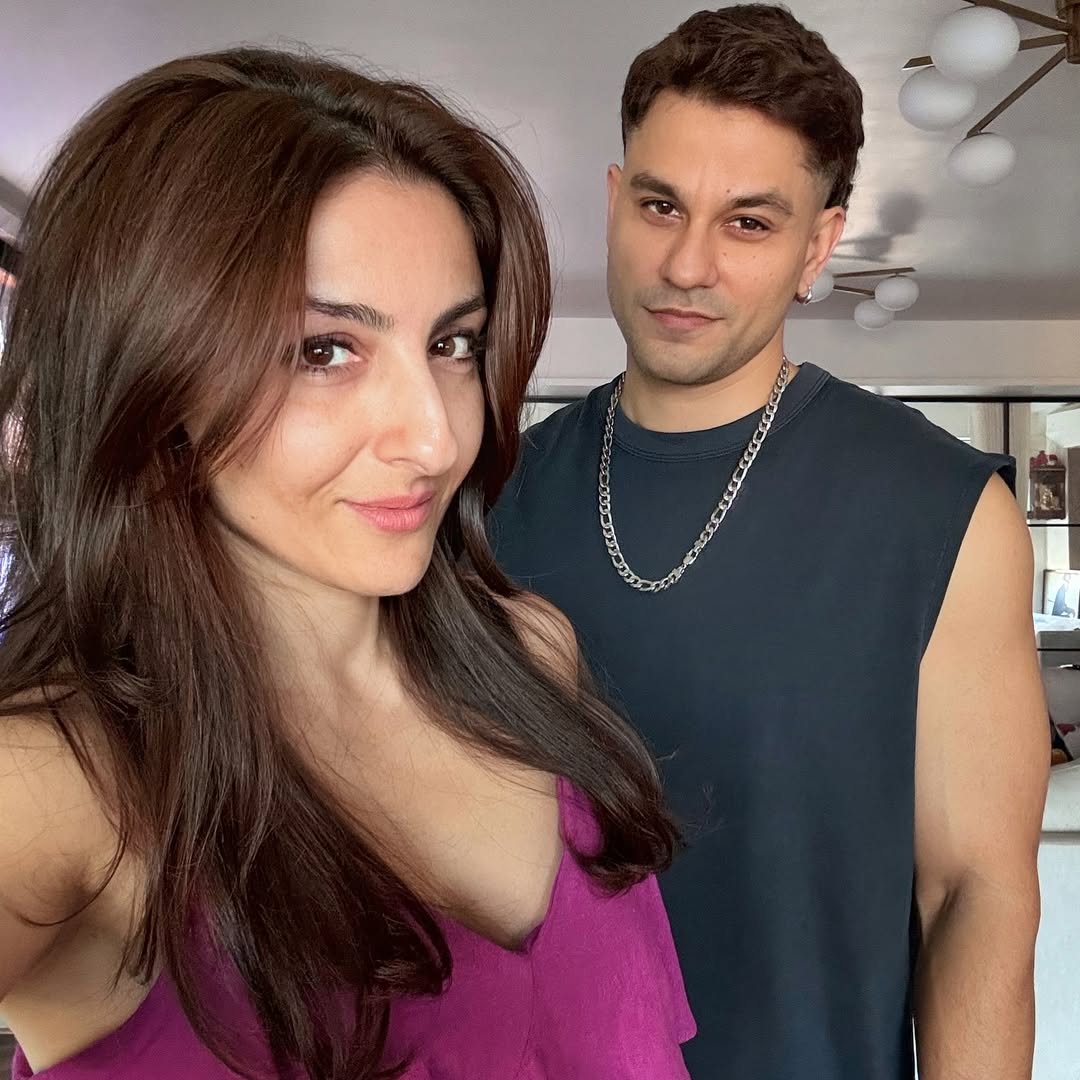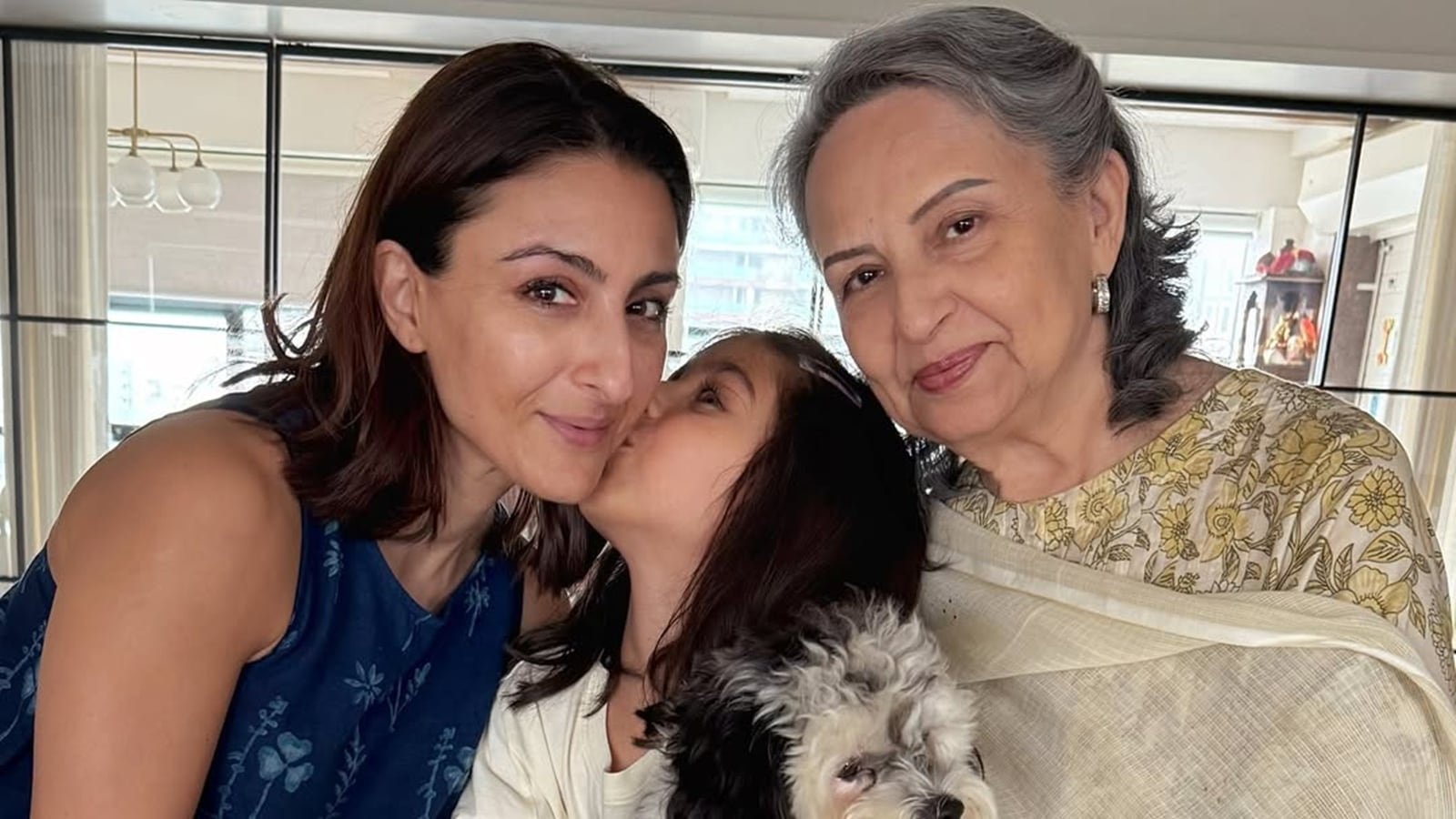Soha Ali Khan’s grounded charm, despite her royal family background, is just one of the many reasons for her popularity. Embodying the values passed down by her mother, Sharmila Tagore, the Tum Mile actor has consistently impressed the audience with her humble and mature outlook on life, relationships, and parenting.
In a recent conversation with The Hollywood Reporter, Soha revealed a valuable piece of advice that she received from the veteran Bollywood star. “My mother told me many years ago, ‘A woman should look after a man’s ego, and a man should look after a woman’s emotions, and if you are able to do that, then you will have a long and successful relationship.’ A lot of people will feel like women also have egos and men also have emotions. And that’s all fair and good. But I feel like it is advice that has stood me in good stead.”
With years of experience being married to cricketing legend Mansoor Ali Khan Pataudi, Sharmila Tagore’s words hold weight, and Muskan Marwah, Clinical Psychologist at Mpower, Aditya Birla Education Trust, agrees.
According to her, the idea that a “woman should take care of a man’s ego, and a man should take care of a woman’s emotions” has been around for a long time. It suggests that relationships work best when both people support each other in different but specific ways. While this advice comes from a place of care, it’s essential to look at whether this mindset is genuinely healthy and effective, especially in today’s world.
“On the surface, the message encourages emotional care. It reminds us to be thoughtful about what matters to our partner. Supporting someone’s confidence or being sensitive to their feelings are essential parts of any strong relationship,” said Marwah, adding that, from a psychological point of view, this is true. Emotional support helps couples build trust, feel connected, and face challenges together. However, problems arise when emotional care is divided based solely on gender.
 Soha Ali Khan, married to Kunal Khemmu, has found this advice applicable in her life. (Source: Instagram/@sakpataudi)
Soha Ali Khan, married to Kunal Khemmu, has found this advice applicable in her life. (Source: Instagram/@sakpataudi)
How can gendered roles lead to relationship troubles?
“When we say women should only manage men’s egos, and men should only handle women’s emotions, we ignore the fact that both men and women have egos and emotions. Everyone wants to feel respected, understood, and valued regardless of gender,” she explained, highlighting that men also have emotional needs. They may feel sadness, fear, or self-doubt, even if they’re taught to hide those feelings. Women, too, care about being seen for their strengths, identity, and self-worth, not just their emotional side. When we limit emotional roles in this way, we risk creating imbalance, she added.
In many relationships, especially those following traditional roles, women often end up doing more emotional work, such as comforting, adjusting, and ensuring the relationship runs smoothly. Marwah mentioned that this can be tiring and, over time, lead to feelings of being unappreciated or emotionally isolated. When one partner consistently gives and the other mostly receives, resentment and disconnection can develop.
Story continues below this ad
“Psychologically, the most balanced and fulfilling relationships are based on mutual emotional care. This means both partners listen to each other, support each other, and take responsibility for how they make the other person feel. It’s not about fixed roles; it’s about understanding what your specific partner needs to feel loved and supported,” explained the expert.
According to her, every person is different. Some need more emotional closeness, while others require words of appreciation. Some value respect and recognition, while others need calm and security. These needs don’t follow gender lines; they follow individual personality, life experiences, and emotional styles.
“Ultimately, whether it’s offering emotional warmth, protecting each other’s dignity, or celebrating each other’s strengths, relationships flourish when both people invest in understanding and uplifting one another,” concluded Marwah.




